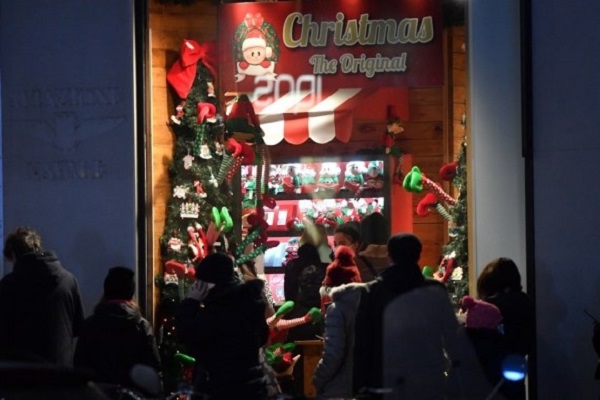
Rome, (Samajweekly) As Italy moves toward what is traditionally the most festive part of the year, analysts and key observers have said that this holiday season will stand in stark contrast to those of previous years in the wake of the ongoing Covid-19 pandemic.
As in most western countries, December in Italy is marked by the Christmas and New Year’s holidays — both customary occasions for family gatherings and parties, Xinhua news agency.
But as the country, one of the hardest-hit in Europe, is currently in the midst of a second wave of thepandemic, almost none of that will be possible.
The latest coronavirus curbs announced earlier this month restricts travel between the country’s regions between December 21 and January 6. Some 70,000 law enforcers will be deployed around the country.
Gatherings of more than six people who do not live in the same household are prohibited.
A national curfew starting at 10 p.m. (some municipalities have set an earlier curfew) has been put in place, and restaurants and bars are required to close before 6 p.m.
The impacts on the economy, particularly in the service sector, are expected to be severe.
Alessandro Massimo Nucara, general manager of the hotel operators association Federalberghi, told the newspaper La Repubblica that Italy’s hotel sector was “headed toward a long, tragic winter”.
He said that after a summer season largely devoid of foreign tourists, hotels will try to survive a winter season without the domestic travellers that traditionally provide most of the business.
“In a ‘normal’ year, around 19 million Italians travel over the holidays, spending around 14 billion euros ($16.94 billion),” Nucara said.
“We expect around 90 per cent of that to be lost.”
According to Lorenzo Bazzana, chief economist for agricultural union Coldiretti, the total impact could be even larger.
He said the total impact to the agricultural and food sector could be as much as 30 billion euros, the equivalent to around a third of the production of the entire sector a year earlier.
“Restaurants closing before dinner is an enormous factor,” Bazzana told Xinhua. “Since the pandemic started, we have seen a modest increase in the value of food products being sold for home use.
“But it hasn’t been nearly enough to balance out the losses from restaurants, and then add to that the absence of foreign tourists and the slowdown in exports.”
Mariano Bella, director of the research department for Confcommercio, a business association, said that the overall reduction in commerce over the holidays should be around 12 per cent compared to the same period a year ago.
As of Friday, Italy has reported a total of 1,787,147 confirmed coronavirus cases and 62,626 deaths.








